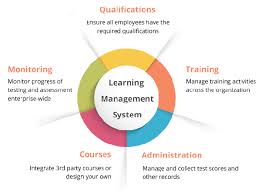
Learning Management Systems (LMS) have become an invaluable tool for various industries to deliver training, track progress, and manage resources effectively. For those in the government sector, particularly at the state and local levels, LMSs offer functionalities tailored to meet the unique needs of public service organizations.
In the world of public administration, where policies, procedures, and regulations are often complex and ever-evolving, an LMS can serve as a centralized platform that supports ongoing education, compliance monitoring, and professional development of government employees.
State and local governments face specific challenges such as budget constraints, the need for transparency, accessibility to all users regardless of location or ability, and security concerns. A well-implemented LMS can address these issues head-on. It enables cost-effective training by eliminating the need for physical training materials and travel expenses while also offering a platform that can be audited and monitored for accountability.
Accessibility features are crucial. An effective government-focused LMS must be compliant with the Americans with Disabilities Act (ADA), ensuring that all employees have equal access to learning resources. Scalability is another important consideration; as agencies grow or change, the LMS should be able to accommodate an increasing number of users and more complex course structures without sacrificing performance.
Security is non-negotiable for state and local governments. An LMS must have robust security measures to protect sensitive information from cyber threats. This includes secure login processes, data encryption, regular security audits, and compliance with government standards such as FIPS (Federal Information Processing Standards) or FedRAMP (Federal Risk and Authorization Management Program).
For state/local government agencies looking to train their workforce on policy changes, emergency responses procedures or even general civic responsibilities, an LMS must offer diverse content delivery methods like online courses, webinars, interactive simulations, and forums for collaboration.
Customizability is another significant benefit for government LMSs. Governments can tailor the platform to suit particular policies or processes unique to their jurisdiction.
In conclusion, Learning Management Systems designed for state and local governments must not only offer strong core functionalities but also specialize in areas like accessibility, security, customizability, scalability, and accountability. As technology advances and more public entities recognize the benefits of digital transformation in their training programs, these systems will continue to evolve to meet those demands.
By harnessing the power of a carefully chosen LMS, state and local governments can ensure that their employees are knowledgeable about up-to-date practices while also saving time and resources – ultimately serving their constituents more effectively.
